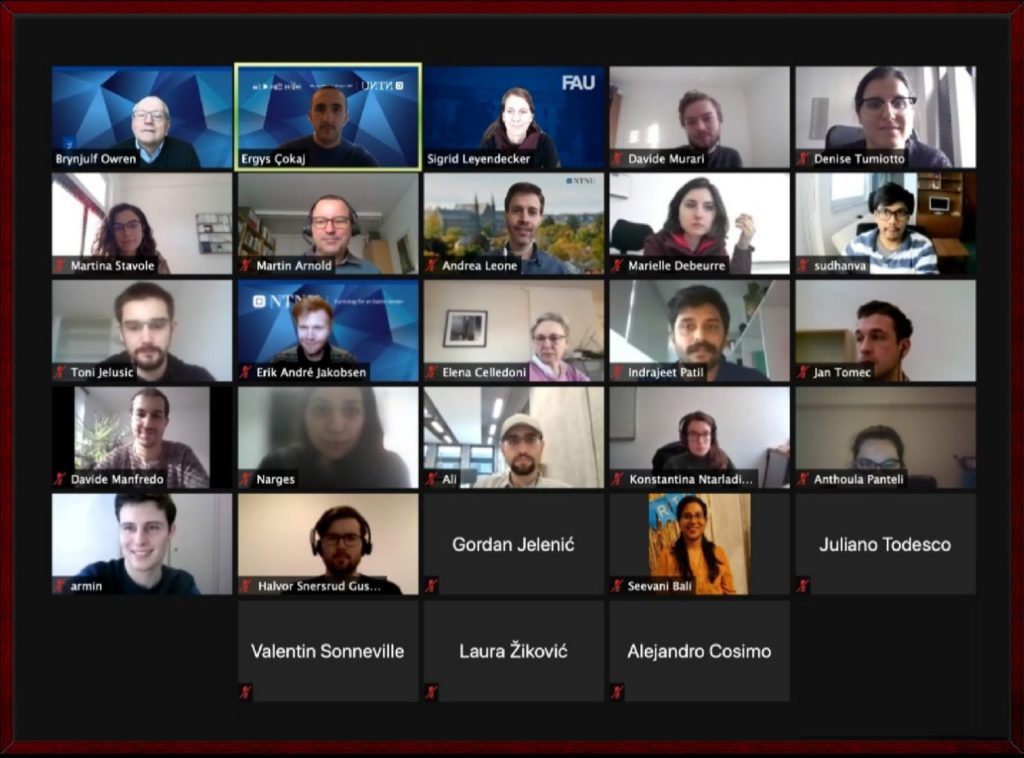
The advanced research network wide training 6 “Geometric numerical integration and Lie group integrators” organized by our host institution, Norwegian University of Science and Technology (NTNU), from 1st to 9th February, has been successfully completed.
It was a fully digital event divided in two main parts: Structure preserving and geometric numerical integration of differential equations and Lie group integrators, which lasted three days each. We had lecture hours in the morning and group exercises in the afternoon.
In the first three days the lecturer Professor Elena Celledoni talked about symplectic integration with Runge-Kutta methods, preservation of first integrals, preservation/dissipation of energy and preservation of two or more geometric properties simultaneously.
On the fourth day there were two guest lectures, one from Prof. Martin Arnold (MLU) and one from Prof. Sigrid Leyendecker (FAU). Prof. Arnold talked about Lie group methods for industrial multibody system simulation, while Prof. Leyendecker talked about Lagrangian mechanics and variational integrators.
On the second part of the course Prof. Owren introduced the participants to Lie group integrators with lectures on Lie Group integrators, motivation and historical remarks, introduction to manifolds and basic concepts of differential geometry, Lie groups, Lie algebras and Lie group Integrators. In particular, Runge-Kutta-Munthe-Kaas methods and Commutator-free Lie group methods were shown. There were interesting discussions on how the different research groups in THREAD use Lie group techniques for their own purpose and we think that this could pave the way to further investigation and new collaborations.

Still hoping to meet physically!
The group exercise sessions resulted to be very fruitful, since we all had the possibility to apply the knowledge we got from the lectures. We analyzed the effect of using structure preserving integrators and implemented the methods in MATLAB/Python to test their properties on some simple test problems (e.g. the pendulum equations written as a Hamiltonian system and the KdV equation). As regards Lie group integrators, we implemented some methods to solve the equations of motion of simple mechanical systems like the free rigid body and the spinning top. Moreover, the group sessions were a chance for the ESRs to get to know each other better, but also to meet other PhD students from the THREAD network.
To conclude, we are sure that after this training all the participants have increased their knowledge and experience in the field of numerical analysis of differential equations.
